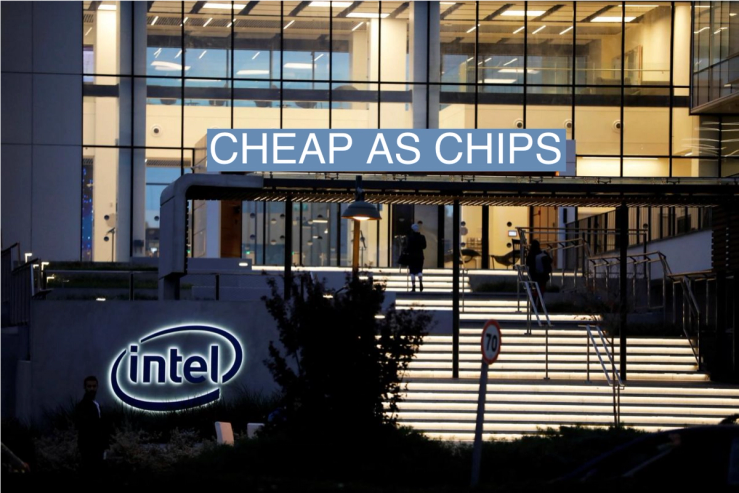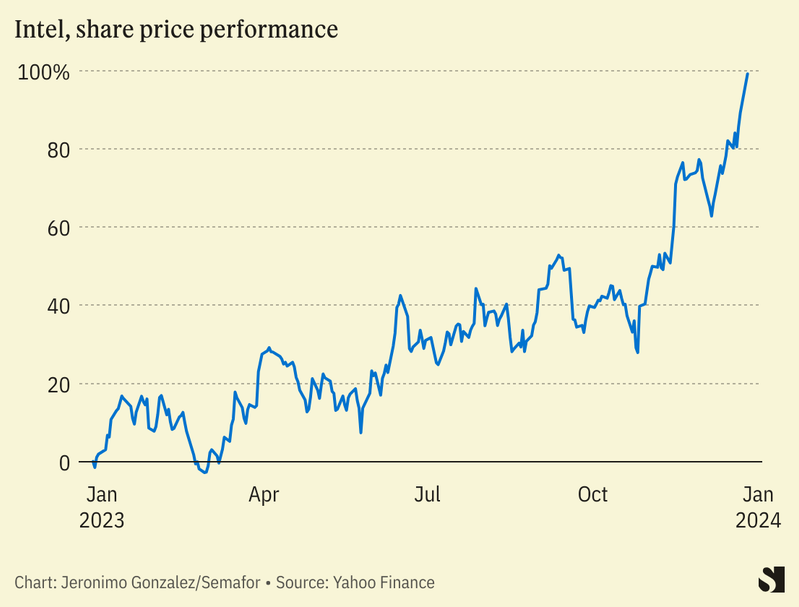
Semafor Signals
Intel’s $25 billion chip factory is Israel’s ‘largest ever’ investment
Insights from The Times of Israel, The New York Times, and Financial Times

The News
Intel will build a $25 billion chipmaking factory in Israel after being granted $3.2 billion in subsidies by the Israeli government. Intel’s investment, which Prime Minister Benjamin Netanyahu called Israel’s “largest ever” by a foreign company, represents a vote of confidence in the country amid the ongoing conflict in Gaza, Israeli officials said. The new facility is due to open in 2028.
SIGNALS
Calls for a boycott emerge
The investment comes at a precarious time for Israel’s economy, which is expected to shrink by 2% this quarter as hundreds of thousands of workers have been displaced by the war or called up as reservists. Israel’s siege of Gaza has given the boycott movement against Israel new wind in its sails, with some boycotting McDonald’s, Starbucks, and Israeli companies such as Sodastream. Some activists quickly took to social media to call for Intel to be boycotted. However, it won’t be easy to boycott the U.S. company, given that it is the world’s leading producer of central processing units, a key component in computers.

Intel has longstanding ties to Israel
Intel’s deal is the latest outcome of the company’s longstanding commitment to Israel. The company has been operating in Israel since 1974. In 2017, Intel was involved in the largest ever acquisition of an Israeli company, buying a driverless technology company for $15 billion. Intel Israel’s exports of $8.7 billion constituted 1.75% of Israel’s entire GDP in 2022. “The Israeli people are the most resilient people on earth. They have not missed a single wafer commitment or product commitment despite the conflict,” Intel’s CEO said two weeks before the deal.
Chipmakers seek to move beyond East Asia
Supply chain issues during the COVID pandemic and fears of a possible conflict over Taiwan have convinced Western leaders to claw back advanced chip production from Asia. Led by the U.S., Western countries are throwing billions of dollars in subsidies at companies such as Intel to foster domestic production. More than half of existing chipmaking facilities are located in East Asia, with over 90% of advanced semiconductors coming from Taiwan.

